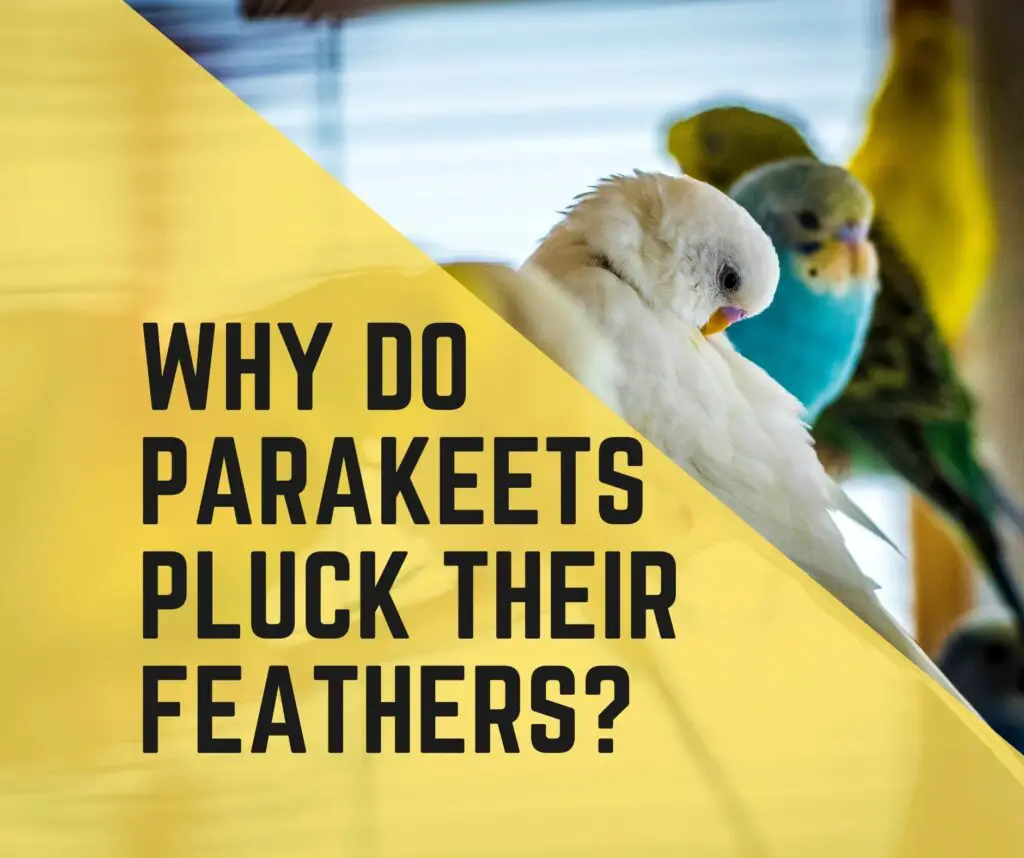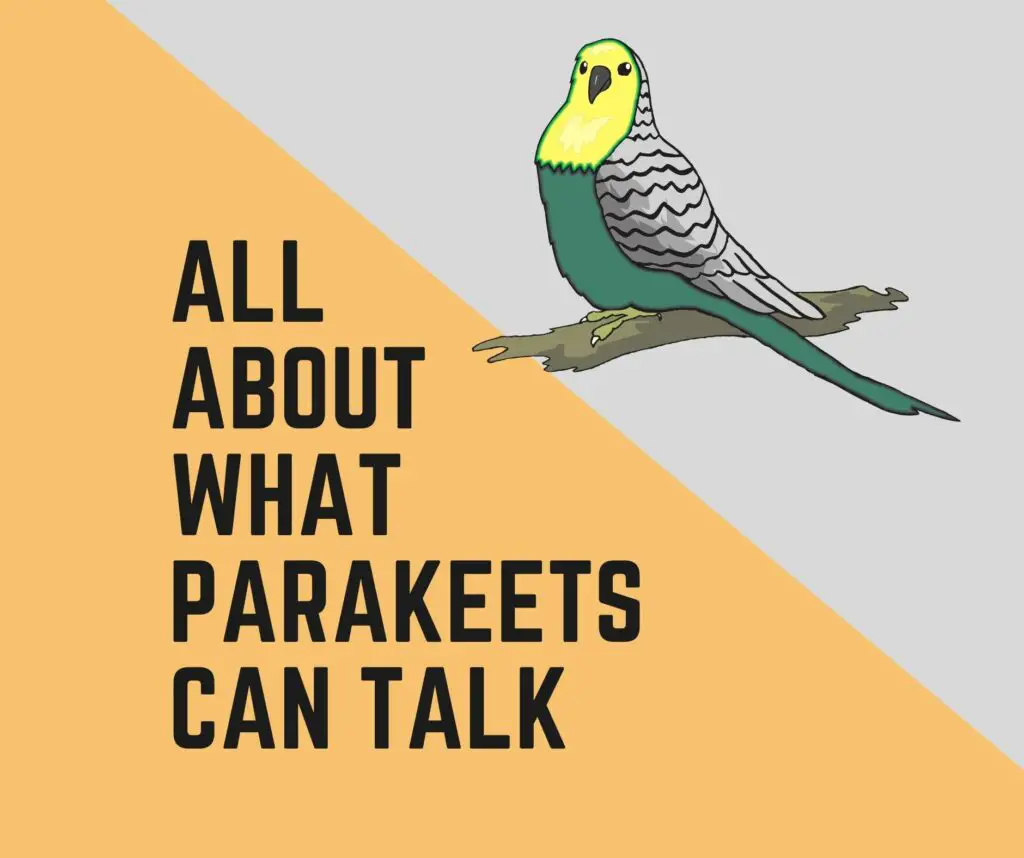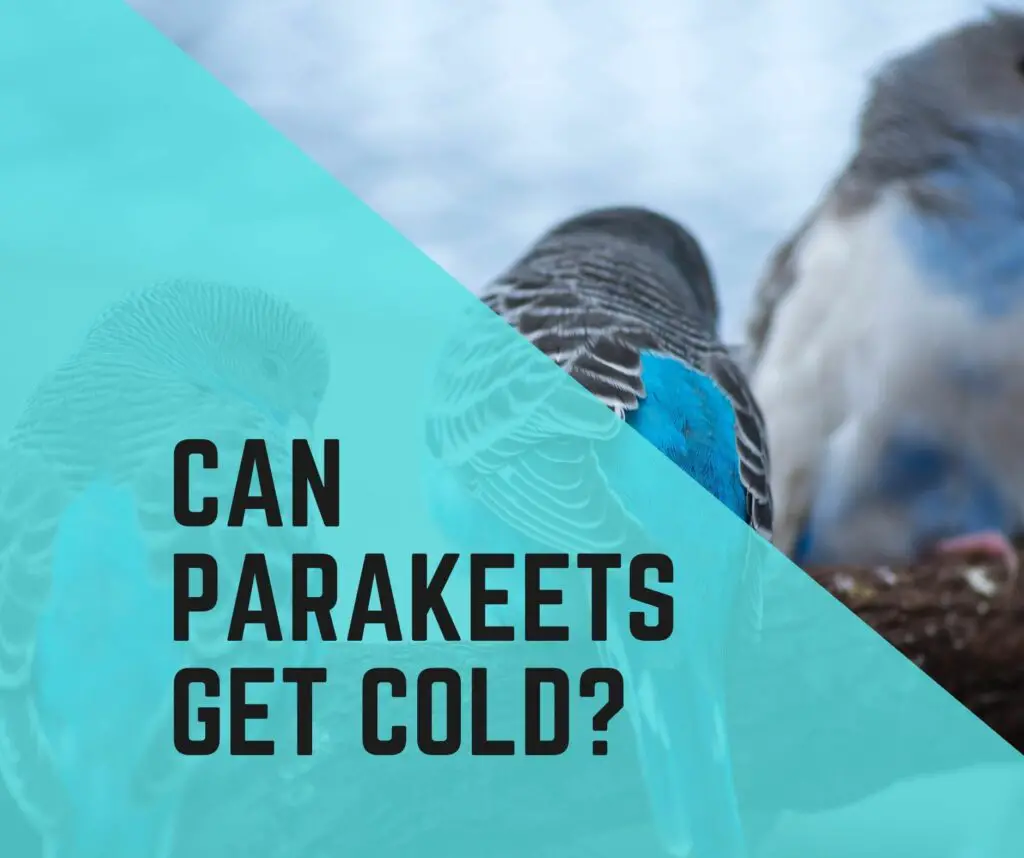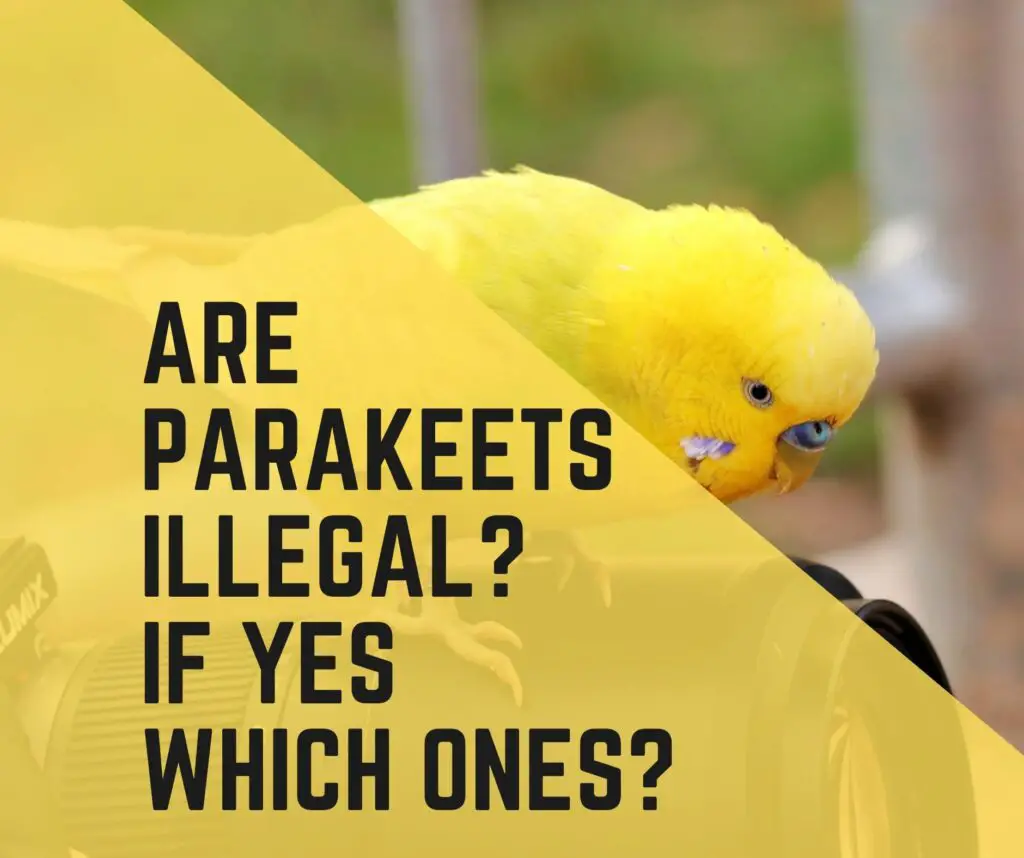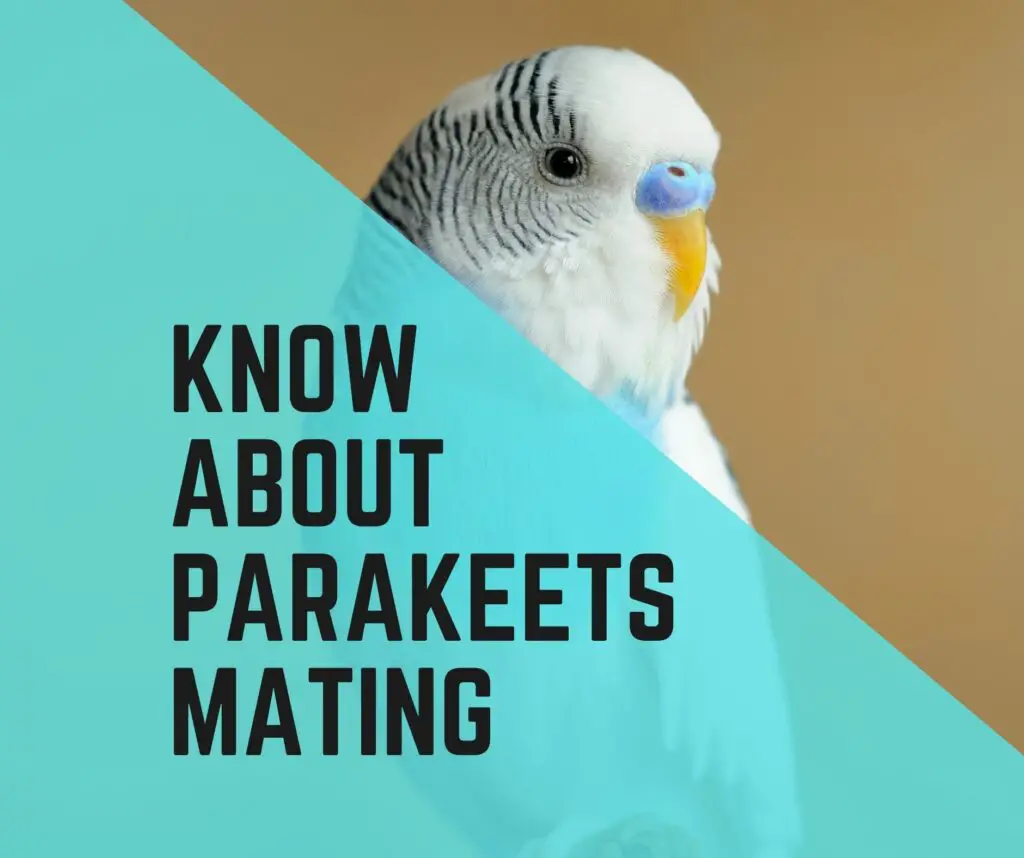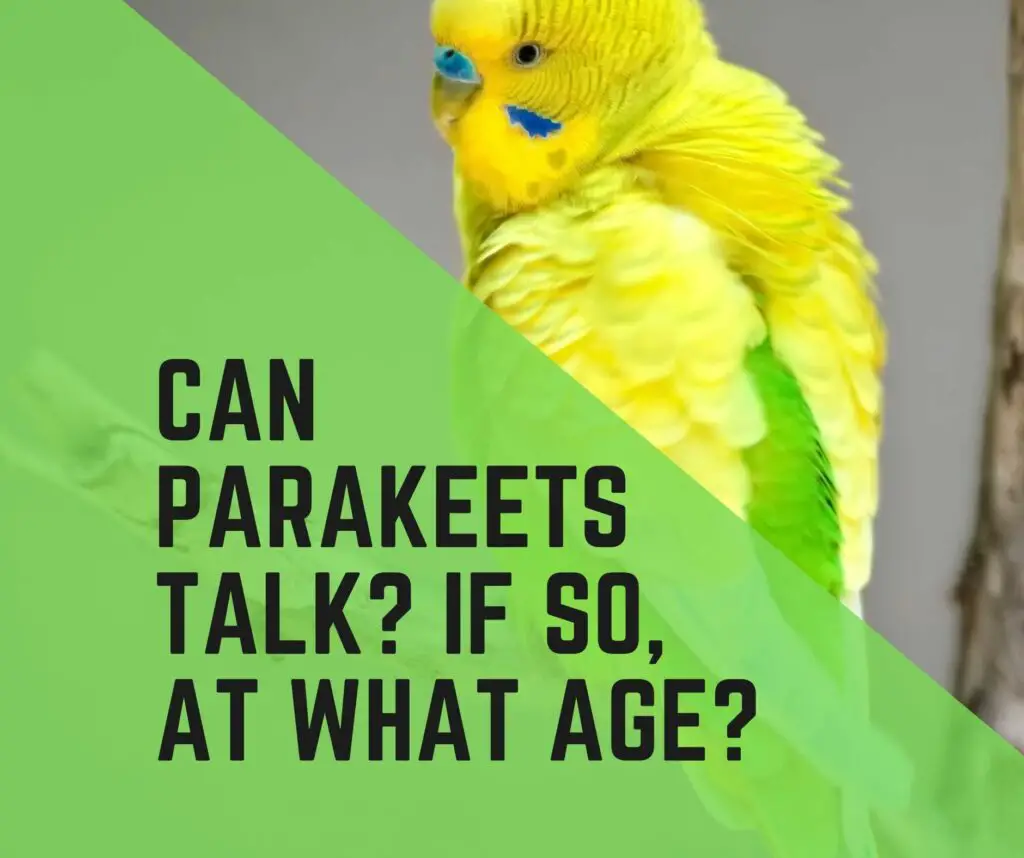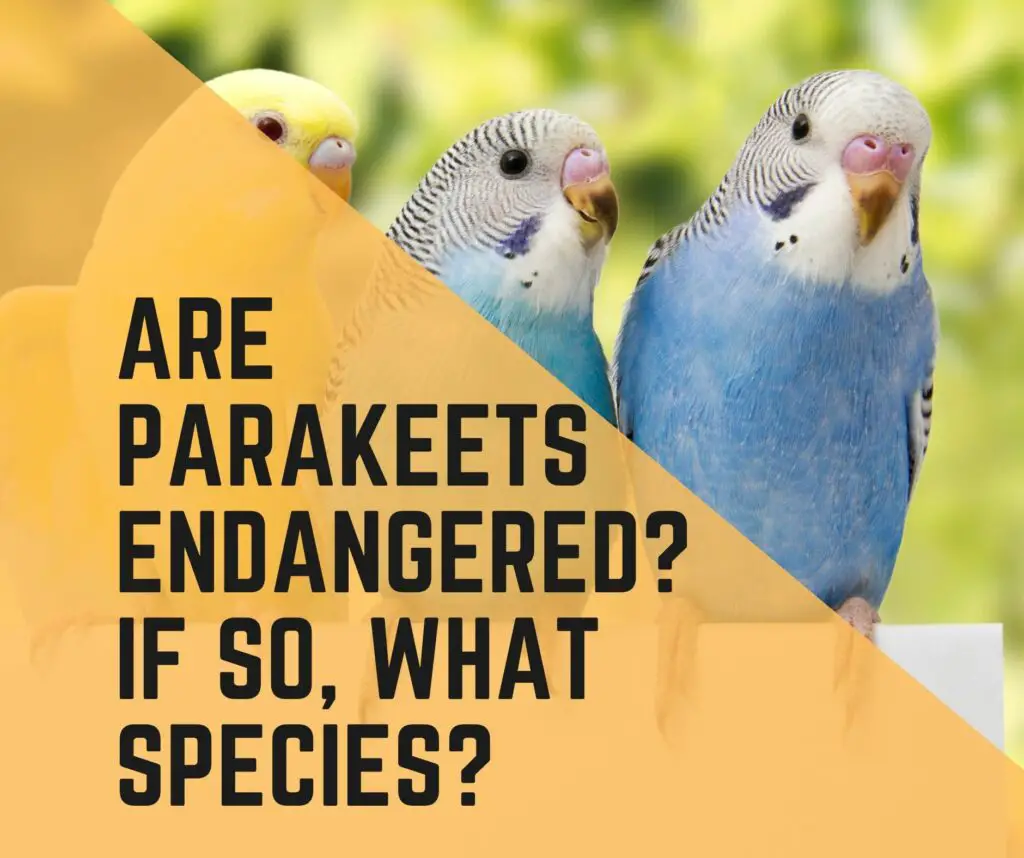In captivity, parakeets have been plucking their feathers to satisfy different reasons. Wild, the birds frequently pluck their feathers to make their nests during the breeding season. If you’re also interested to know why parakeets pluck their wings, this is the information you need to know.
5 Reasons Why Do Parakeets Pluck Their Feathers?
Many birds, including parakeet feathers, generally occur due to Molting, and many other reasons could affect the intensity of their plucking and grooming practice. Birds, including parakeets, like to groom themselves and prettify themselves as they pluck their feathers.
In captivity, a parakeet is known to pluck its feathers, which could indicate health issues or environmental factors. It is also known as feather plucking, and you might be interested in knowing why is my Parakeet plucking its feather?
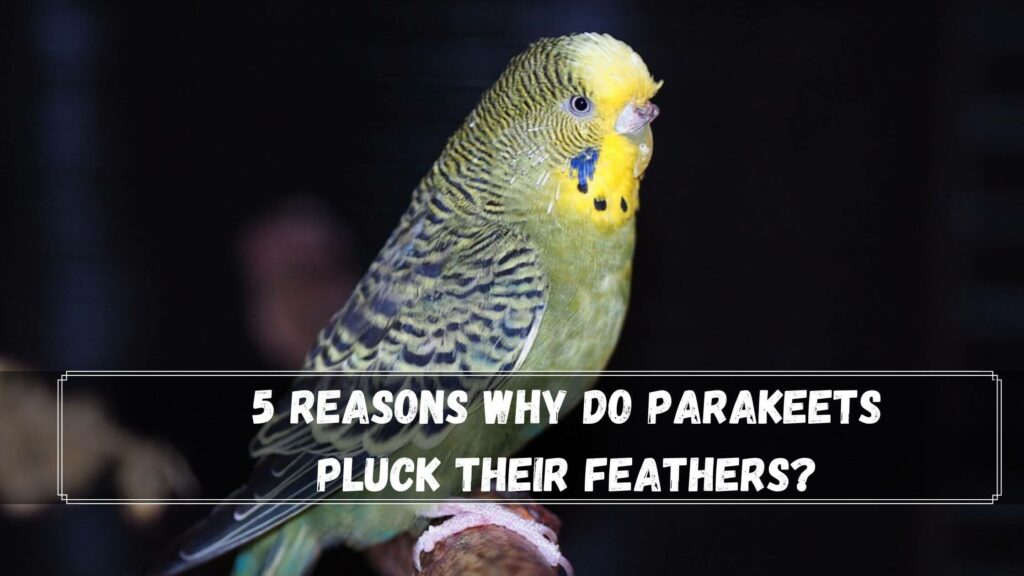
1. Maybe Your Parakeet Is Just a Victim!
If you’ve kept your Parakeet in a group of birds, then it is possible that the other bird has snatched from the bird’s feather. Bird affected. It is common to notice damage to feathers in the breast and neck since it’s the easiest to reach using the beak. If you think that one of your birds is plucking the other feathers, it’s ideal to separate them immediately.
2. Your pet may have PBFD.
PBFD is a feather-related disease usually seen among birds, including parakeets. Psittacine beak-and-feather disorder (PBFD) can also be referred to as psittacine circovirus (PCV), also known as Psittacine Circoviral Disorder (PCD).
This is among the most prevalent and highly infectious diseases among parakeets. If you think your bird has been plucking its feathers often or frequently, the best option would be to have your bird examined at your nearest Avian veterinarian.
Be quick as only a licensed veterinarian can find out if the bird is free of PBFD as well as psittacine or any other health problem. If you pass all medical tests and tests for plucking, it is usually because of an environmental issue.
3. Your Parakeet Might Be Molting
Every bird, including parakeets, needs to molt periodically to replenish its feathers. Due to their continuous flying, wild birds’ feathers can wear away. Molting is a normal and safe process that is common to everyone.
Birds to shed their old feathers and replace them with new feathers. Parakeets may pull out too many feathers in the process of Molting. Learn what causes parakeets to molt?
Because Molting is extremely uncomfortable and itchy for parakeets and other birds, the psychological and physiological disturbances can cause the excessive plucking of feathers. Sometimes, it’s difficult to pinpoint the physical or psychological cause is behind this bizarre behavior.
4. Your Parakeet Might Be Grooming/Preening
It’s commonplace to see your pet’s parakeet content and singing from his perch. The next day he’s pulling out feathers in a zillion ways. It could appear to be bad behavior, but often the reason behind this behavior isn’t clear.
However, if you see the Parakeet squirming its feathers at times, he could be grooming. If, however, your parakeet is constantly plucking its feathers, it’s probably destructive, and there could be a problem with their feathers.
It’s best to take him to the closest vet. For most new owners, normal feather-picking behaviors and destructive feather plucking behaviors are difficult to differentiate. A typical feather plucking pattern involves plucking feathers to groom or preen. The destructive behavior involves the bird squeezing off a large portion of its feather at a time.
5. Parakeets Pluck Feathers To Regulate Their Body Temperature.
To draw male birds and attract male birds, their feathers are plucking. The Parakeet can naturally pluck its feathers to regulate body temperature for added security.
Interesting Further Reading
- 15 Best Organic Parakeet Foods in 2022
- 17 Different Types Of Parakeets
- What Vegetables Are Good For Parakeets? In 2022
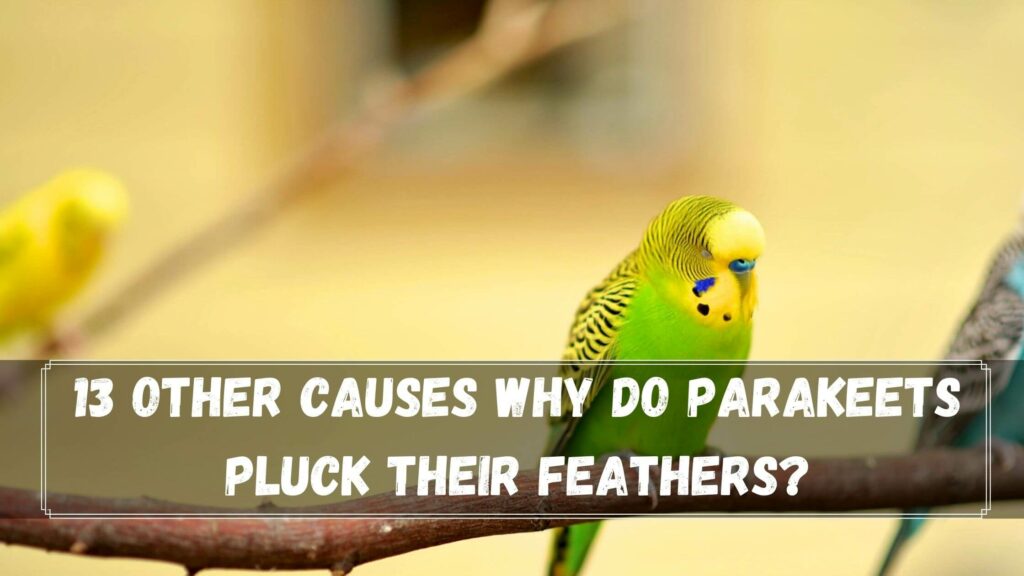
13 Other Causes Why Do Parakeets Pluck Their Feathers?
Insufficient sunlight and fresh air:
Constant sunshine and clean water are essential for the production of Vitamin D3. Vitamin D3 plays a significant part in the ability of a parakeet to absorb calcium in its diet.
Because of the absence of sunlight and vitamin deficiencies, particularly Vitamin D3 deficiency, could fatally affect the immune system.
An unhealthy diet
feeding them a low-quality diet that isn’t nutritionally balanced or designed to meet your pet’s requirements is usually a wrong and unhealthful food choice for your pet. we recommend being careful not to feed any diet containing preservatives or added dyes.
Interruptions to normal dark and light cycles.
Most birds require a photoperiod with sunlight or full-spectrum lighting plus darkness to aid their sufficient amount of sleep. there are steps you can take to modify the dark and light cycles for your pet parrots to maintain them healthy and happy.
Dry skin scaly skin
This is a frequent problem for caged parakeets. Inadequate levels of vitamins in the parakeet’s body are often the cause of the skin becoming scaly.
Vitamin A deficiency can cause dry, flaky skin for parakeets. Ectoparasites like mites may cause the skin to thicken around the legs of certain birds.
Metabolic conditions:
Metabolic bone diseases in Parakeet cause painful, degenerative changes to the bones caused by nutritional imbalance and deficiency.
Vitamin D3, calcium, and phosphorus imbalances can cause softening of the claws of your bird, Keel, bone, and beak. It may even cause an increase in the parathyroid glands in your bird.
Inflammation and skin irritation:
Bacteria, including staphylococci, streptococci, and Bacillus species, are believed to cause most skin conditions among parakeets.
Skin inflammation could result from an infection caused by various species. Staphylococci are usually isolated from pododermatitis-related areas in various species of avian.
Cancer is a common occurrence in birds.
It usually resides in parakeets’ Ovaries, liver stomachs, pituitary, kidneys, and thyroid glands. The ailment is also prevalent within the bones and muscles of a specific Bird.
Boredom:
The bird may also begin plucking its feathers when bored. The most effective way to combat boredom is by using a variety of toys with vivid colours, various textures, and fun.
You could also purchase an additional companion bird; If this isn’t working, you must continue mastering the follow-on commands. Additionally, it would help if you didn’t try to overburden the bird with toys. Instead, switch them around every couple of times to keep him entertained.
Stress and emotional stress:
Parakeets typically display their stress or depression in various ways. One of them is to pluck its feathers. Although many bird owners interpret parakeets plucking their feathers as a sign of aggression, the behaviour can indicate stress and anxiety. Parakeets often flail and pluck their feathers to calm themselves the stress.
Allergies:
A Parakeet suffering from allergies can wheeze or sneeze. The Parakeet could develop an itch on the skin in certain instances due to an allergen.
This is another alarming scenario for you, and you may have to act quickly before it affects your keets further. Like humans, this reaction can become more and more severe, as the Parakeet’s body is more sensitive to an allergen every time.
Parasites:
Parakeets are vulnerable to various types of parasites, both internal and external such as protozoa, fungi, viruses, bacteria, and helminths.
External parasites:
Because of the abnormal growth of the feather inside the follicle, cysts may develop. It is visible in the form of an oval-shaped or elongated swelling in the follicles of skin feathers in the Parakeets.
The most typical location in which these parasites can be observed is in the vicinity of the secondary and primary feathers on the Parakeet’s wings.
Poor grooming:
Like dogs and cats, regular grooming is necessary to ensure that your bird is secure and healthy. When in the wild, parakeets frequently use their flight feathers to move about and search to find food. Since they can land on rough branches and limbs, they keep their nails damaged.
However, in captivity, the Parakeet’s experience is different. They don’t have branches that keep their nails trimmed or enough room to fly around. Poor grooming can cause your Parakeet to pluck its feathers too much.
Conclusion
A parakeet with the feather plucking problem or behavior isn’t easy to treat. We all want to see our beloved pet animal live a happy and healthy life, however with the plucking of feathers; there isn’t a certain or exact method of determining what’s causing the negative behavior in the bird.
There are a lot of failures and trials to determine what’s causing the undesirable behavior in your pet. I made every effort to identify all the factors that may cause your bird to pluck its feathers.
I hope that you have enjoyed studying this article. If you have found it helpful in obtaining answers to all your questions, or if I helped you to feel better about your Parakeet’s behavior, post this guide “why do birds have their feathers plucking on social media accounts.

Hi, There and Welcome to BirdsNews.com, is here to help you learn and care about pet birds. and this blog is a journal of everything I’ve learned.

